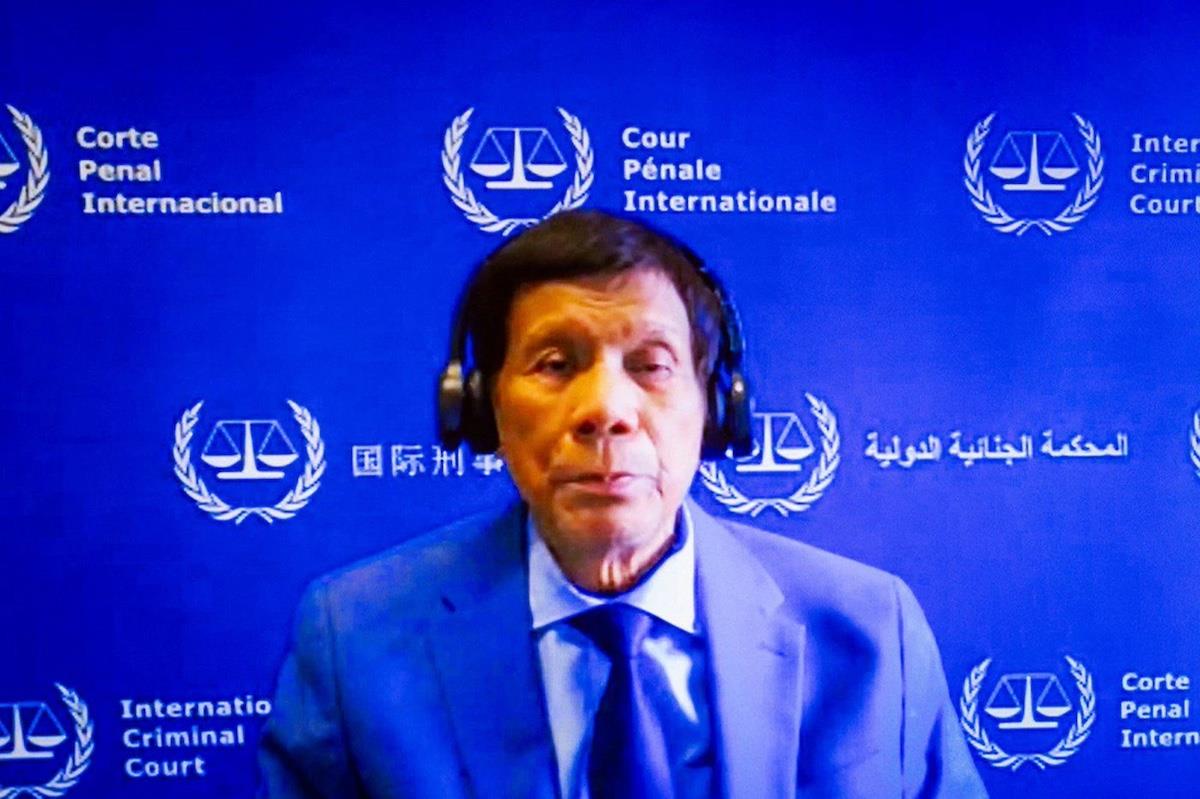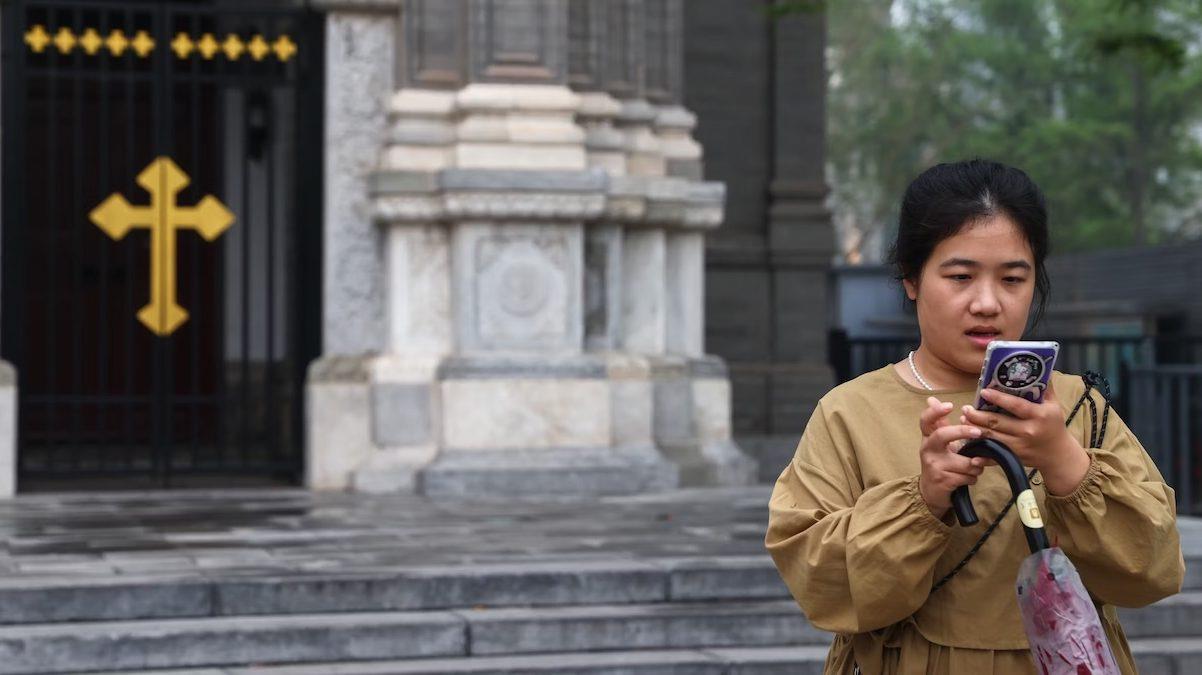
Beijing Looking To Exert Tighter Control Over Chinese Christians
The Zion Church, a large unregistered church with congregations across China, has been on the authorities' radar for many years. So the question is not why the crackdown is happening, but why it is happening now. China's tense relations with the US have as much to do with this as domestic religious policy.
China's relationship with Christianity is complex, and has been marked by periods of tolerance and persecution. The country officially recognises five religions: Buddhism, Daoism, Islam, Catholicism and Protestantism. Of these, only Buddhism and Daoism are regarded as indigenous religions and central to Han Chinese culture.
Together with Confucianism, they formed the so-called three teachings that provided the spiritual and ethical foundation of Chinese society throughout much of its imperial history (from 200 BCE to 1911).
Other religions flourished alongside these, including Islam and Christianity, both of which found their way into China many centuries ago via trade routes. The earliest historical sources date the arrival of Nestorian Christians in China in the 7th century.
But the first major growth spurt of Chinese Christianity only occurred in the 19th century. This period saw China sign various treaties with Western powers, which opened the doors for Protestant missionaries and led to the establishment of Protestant charitable institutions.
At the same time, the presence of Western missionaries in China fueled xenophobic movements. These movements ultimately contributed to the downfall of the empire. Christanity's association with Western imperialism continues to cloud Beijing's view of the faith to this day.
Latest stories
China reportedly caught reverse-engineering ASML's DUV lithography

Russia's no democracy, so Trump's sanctions won't stop the war

Duterte fails in bid to block ICC jurisdiction over his case
After the founding of the People's Republic of China in 1949, all foreign Christians were expelled from the country and state-run self-governing bodies were created for all main religions.
Dissatisfaction with these bodies – which was related to, among other things, the requirement to cut ties with churches and religious authorities outside China – led to the formation of unregistered churches. These churches, which are also known as house churches, have existed outside of state control ever since.
Arrests and severe persecutions of Christians started in the 1950s and continued, as for all other religious practices, during the Cultural Revolution. This was a ten-year period between 1966 and 1976 of extreme political upheaval and violence.
But, as the country emerged from the Cultural Revolution, it became clear that religious belief had survived in a sustained fashion despite severe repression. And the more liberal 1980s enabled the second growth spurt of Chinese Christianity.
The new political climate allowed more space to practice religion. This more open climate also meant that ties with churches abroad could be informally reinstated and that foreign missionaries, often in the form of English teachers on campus, returned to China.
The rapid growth of Christianity during this period led some observers to argue that Chinese Christians could be a decisive factor in the global balance of power.
Cracking down on religionIt's hard to estimate how many Christians there are in China today. Official estimates are generally considered too low, while predictions by international Christian organizations are probably too high.
The generally accepted figure settled at around 90 million earlier this millennium, which puts the number of Christians in China in line with the number of Communist party members. This number is unlikely to have grown significantly since then. Research from January 2025 suggests that the number of Chinese Christians has been plateauing for the past 20 years.
The reasons for this are complex. The main concern of pastors and church leaders in the 2000s was how to retain new converts, especially among the younger generation. But China's religious policy under Xi Jinping will also have been a factor.
From the start of his leadership in 2013, Xi has struck a fundamentalist tone. He has promoted elements of traditional Chinese culture paired with socialist values as orthodox state doctrine. At the same time, he has severely repressed religions considered a potential threat to the state. This has played out most starkly in the persecution of Uyghur Muslims in Xinjiang, but it has also affected Chinese Christians.
New regulations on religion were passed in 2015. They involved tighter state control of religious sites, church finances and involvement in charitable activities. One year later, Xi formally introduced the need for the“Sinicization” of religion – the closer assimilation of all religions to Chinese state ideology.
This policy came with five-year plans that heralded the destruction of religious statues and the visual alteration of religious buildings. It also introduced more emphasis on the commonality between socialism and Christianity in doctrine.

Sign up for one of our free newsletters
-
The Daily Report
Start your day right with Asia Times' top stories
AT Weekly Report
A weekly roundup of Asia Times' most-read stories
The forcible removal of crosses from church buildings and the 2018 detention and subsequent sentencing to nine years in prison of Wang Yi, a prominent church leader, were further signs of the severity of the crackdown.
One particular bone of contention that further blights the lives of ordinary Christians in China is the close link between some unregistered churches, or individual people within them, and evangelist lobbying groups in the US.
Chinese-American Christians close to the Republican party are often instrumental in providing support for prominent exiled figures. They also ensure that the persecution of Chinese Christians remains high on the agenda in bilateral relations. In turn, repressive measures tend to intensify when relations between China and the US deteriorate.
It is in this context that the timing of the recent crackdown needs to be understood. Sweeping in on a well-known unregistered church like the Zion Church, whose founder's daughter is a US Senate staffer, is as much about Xi sending a signal to Washington as it is about controlling religious activity at home.
Unless US-China relations improve, Chinese Christians have to expect that more such signals may follow.
Gerda Wielander is a professor of Chinese studies at the University of Westminster.
This article is republished from The Conversation under a Creative Commons license. Read the original article.
Sign up here to comment on Asia Times stories Or Sign in to an existing accounThank you for registering!
An account was already registered with this email. Please check your inbox for an authentication link.
-
Click to share on X (Opens in new window)
Click to share on LinkedIn (Opens in new window)
LinkedI
Click to share on Facebook (Opens in new window)
Faceboo
Click to share on WhatsApp (Opens in new window)
WhatsAp
Click to share on Reddit (Opens in new window)
Reddi
Click to email a link to a friend (Opens in new window)
Emai
Click to print (Opens in new window)
Prin

Legal Disclaimer:
MENAFN provides the
information “as is” without warranty of any kind. We do not accept
any responsibility or liability for the accuracy, content, images,
videos, licenses, completeness, legality, or reliability of the information
contained in this article. If you have any complaints or copyright
issues related to this article, kindly contact the provider above.


















Comments
No comment